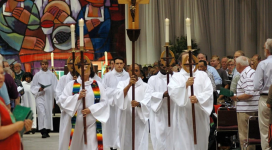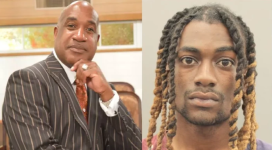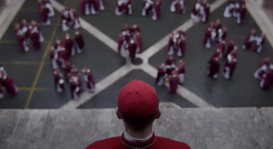According to a new poll conducted by Ellison Research on behalf of Lifeway Christian Resource, a large majority of Protestant clergy believes the separation of church and state in the United States has gone to far.
The 700 pastors who partook in the survey chose one of three statements that best fit their beliefs: “the separation of church and state in the U.S. has not gone far enough; more is needed”; "the current separation of church and state in the U.S. is right about where it should be”; and “The separation of church and state in the U.S. has gone too far, or in ways it never intended to go.”
Of the three choices, only 8 percent agreed with the first, 13 percent sided with the second, while 78 percent agreed with the last statement.
The results were also divided by denominational groups: 93 percent of Southern Baptist ministers, 92 percent of Pentecostal and charismatic pastors, 70 percent of Methodist ministers and 66 percent of Lutheran pastors said they believe the separation has gone too far.
The study also asked several specific questions in relation to the state-church separation issue.
The first question was in regards to the Pledge of Allegiance. 95 percent of all clergy said they believe “under God” should be preserved in the pledge. The survey then asked pastors if they would support the display of Ten Commandment effigies in public areas; 85 percent of the clergy said displays should be allowed. The next question concerned the display of Christmas nativity scene on government property; 93 percent of National Association of Evangelicals members said such scenes should be allowed while 59 percent of National Council of Churches’ members said the same.
When pastors were asked if “Christian displays should be allowed on government property, but not those of any other religion,” only 37 percent answered yes. Twenty two percent of ministers said they believe, "no religious displays of any kind should be allowed on government property,” and 30 percent of ministers said "religious displays from major world religions (such as Christianity, Judaism, or Islam) should be allowed on government property.” Only 12 percent of clergy said "religious displays from any religion (whether it's Christianity, Hare Krishna, Wicca or anything else) should be allowed on government property."
Concerning the issue of using government property for Christian meetings, 95 percent of ministers from NAE-member denominations and 81 percent of NCC-member denominations said they would agree, but only if non-religious groups can do so as well.
In terms of the motto “In God We Trust,” which is engraved in U.S. currency, 96 percent of American clergy said they support such a motto.
Upon analyzing the data, Ron Sellers – president of Ellison Research, said there was widespread agreement between clergy of all ages and all denominations, on retaining the faithful heritage of the U.S.
“The vast majority want general expressions of belief to remain in place, such as 'In God We Trust' on currency or 'under God' in the Pledge of Allegiance," Sellers said. "They also clearly demand parity for religious groups in public life, such as allowing a church group to use the city hall for a meeting if the garden club is given the same privilege. Those beliefs are pervasive, whether the minister is young or old, liberal or conservative, and regardless of denomination -- we've seen more agreement on this than on just about any other issue we've studied with ministers.”
However, Sellers said there is division in terms of the specifics of the issue.
”The “divisive issue” is “how this parity applies to individual religious groups. There is a lot of disagreement about who should be allowed a religious display on government property, for instance. Pastors find it easy to agree on basic beliefs related to church and state, but much harder to agree on specific application of those beliefs,” said Sellers.







